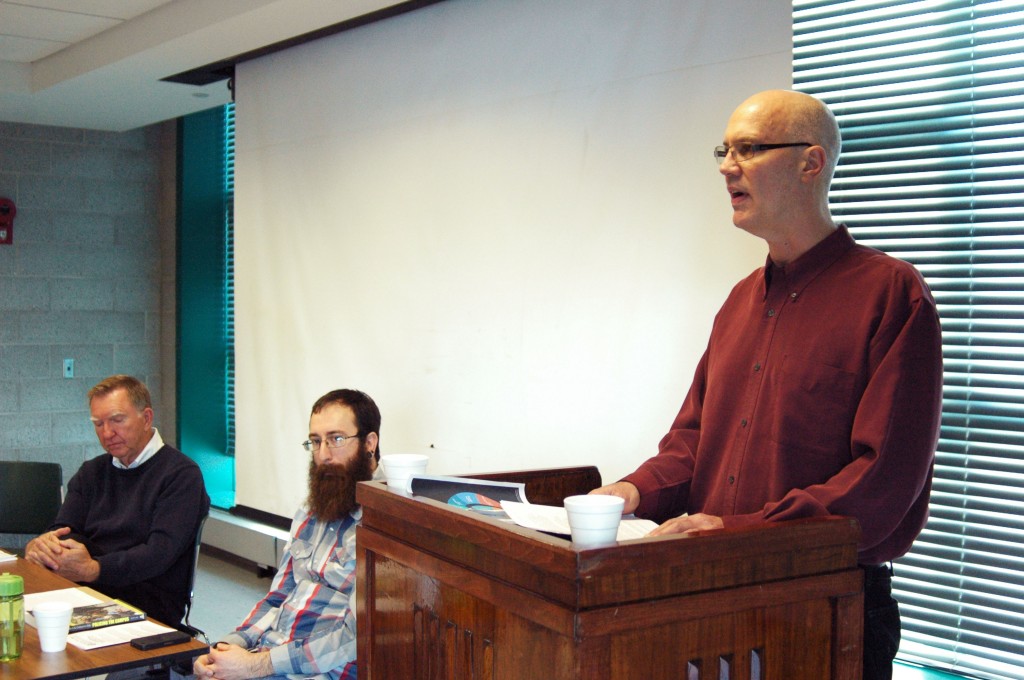
The speakers were split up into panels, discussing government violence in schools and implications of drone warfare.
Local organizer Jack Gilroy described his lifelong efforts as a teacher at Maine-Endwell to encourage peace efforts.
“When I was across the river I did teach peace studies, but as a subversive activity,” Gilroy said. “You really couldn’t call it peace because that’s dangerous. It might imply that there are people opposed to making us free. I got tired of the whole system here, and me and my family decided to emigrate to Australia back in 1971.”
Political and technology writer and doctoral candidate Ben Brucato said that peace efforts have a direct impact on college campuses where police are permitted to carry lethal weapons.
“Discussion related to guns on campus proceed from an unspoken presumption of the legitimacy of an armed police presence at institutions of higher education,” he said. “The securitized campus, prepared for the unlikely active shooter, is nonetheless one where campus police are armed and prepared to kill students or area residents.”
Brucato said that arming police is costly and does more harm than good.
“It’s vastly more common for an officer to assault or kill a student than for an active shooter to appear on school property,” he said. “In almost all school shootings, the scenario ends before police even arrive on the scene.”
For some speakers, like Leslie James Pickering, protesting has an even more personal meaning. Pickering said he used to be a representative for a protest movement in Portland, Ore.
“During a 30-day period, I got some 40 or 50 pieces of mail, and they photocopied every single one,” Pickering said, referring to the police surveillance he was under. “This is from my attorney, and the letter is stamped ‘legal mail.’ It’s supposed to be a federal crime to tamper with legal mail, but of course the federal government is the one doing it.”
Pickering described how past protesting efforts had made him a target of the FBI; he said his phone records, mail, associates and even trash had been investigated in secret.
While Pickering expressed concerns for his well-being, he said protesting for justice was more important and encouraged the audience to stand up to government institutions.
“It’s very important not to be intimidated. It’s natural to be scared and frightened because the system comes after you when you organize, even if you’re not doing anything wrong,” he said. “Don’t let them make your decisions for you. This world is ours and if we struggle we can fix these things.”
Professor Ute Ritz-Deutch from SUNY Cortland argued that peace was only possible through government transparency.
The six-hour marathon of speakers in the New University Union was interspersed with breaks and conversations on the best ways to lobby for peace.


